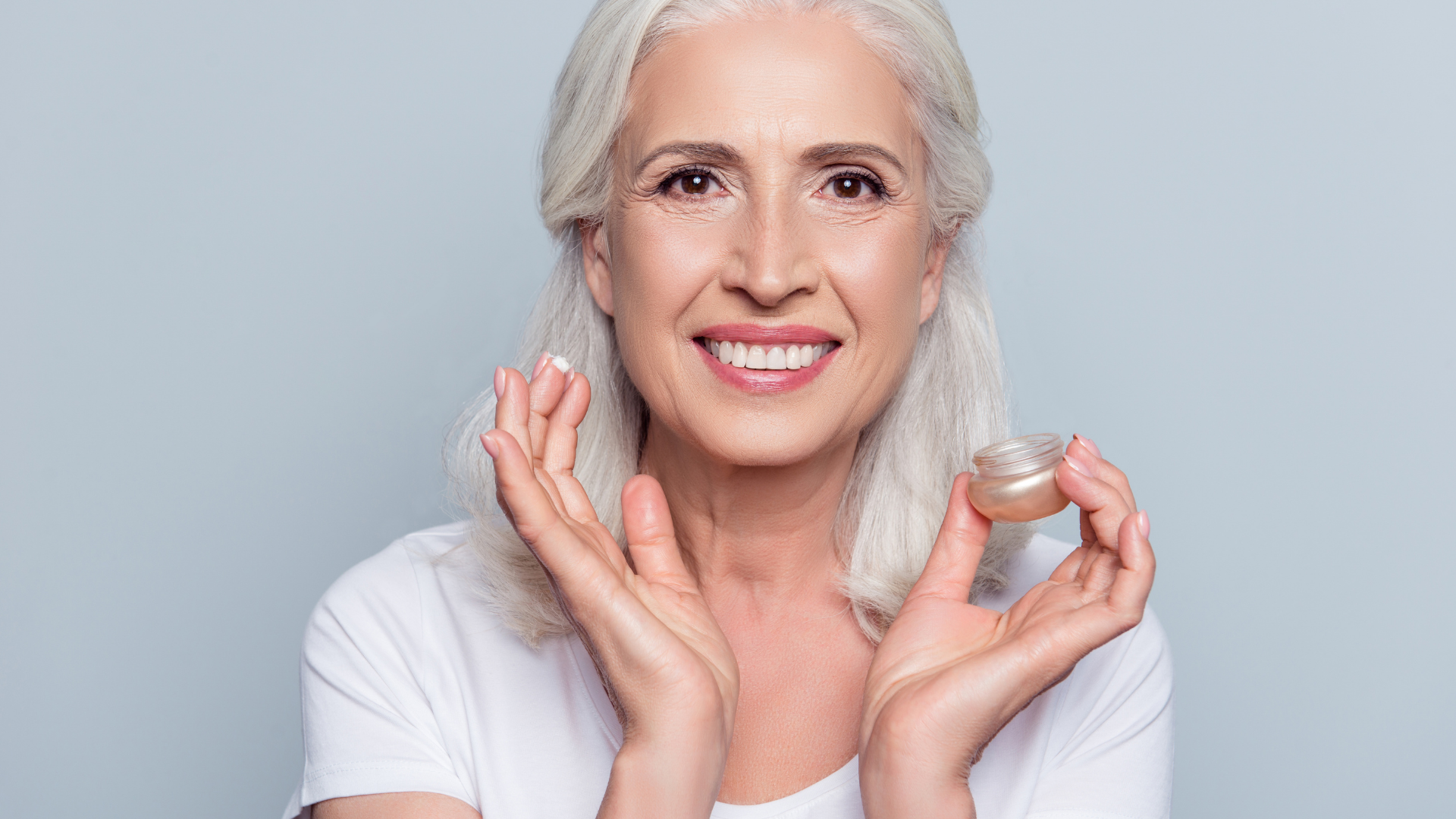Demand for facial Vitamin C has blown up over the last two to three years. The industry has flooded the market with Standalone Vitamin C serums, together with other active ingredients which apparently make our skin look younger, healthier, plumper and reduce the look of sun-damaged skin.
So what is “Vitamin C”? It is an active ingredient applied topically to the face usually in the form of a gel or serum. “The benefit of Facial Vitamin C is it’s an antioxidant that helps to prevent Free Radicals from forming, free radicals have a negative effect on the skin by breaking down elastin and collagen”.
Medical Disclaimer: I am not medically trained and the information attached is my own experience and reviews, should you have any medical or skin related queries please speak to your Doctor.
As we age the production of both collagen and elastin reduces and if we can find a way to slow the process then all to the good. Vitamin C would appear to offer the ultimate crowning achievement. If you are anything like me and are still left wondering about this miracle plant ingredient, then you may find this post helpful and will hopefully answer every last question you may have about this little “pot of gold”
What Does Vitamin C Do?
More specifically what does Vitamins C do for the skin? I have tried one or two (understatement) and found that some Vitamin C products are better than others, but nearly all offered improvement to my skin. So what does it actually do?
Vitamin C can help with blemishes, reduce the look of hyperpigmentation (dark spots). Can boost the production of collagen, which is something we lose as we age. Collagen is the magic ingredient that the body produces to give that young dewy glow. It is this elusive ingredient that the beauty industry has tried to replicate, this can be injectable fillers, laser (non-evasive) surgery or indeed and now recently “topical” creams and serums. The arrival of Vitamin C coupled with other active ingredients has literally taken the beauty world by storm.
What have I noticed when using Vitamin C? My dry skin absorbed the product immediately, my skin looks like its well-rested and healthy an almost indefinable good look, like I have had nine hours of good sleep.
Why Is Vitamin C Important For Anti Aging?
If you are reading this article you will already have a good idea of how Vitamin C has been a game-changer in the beauty world and specifically fighting the signs of ageing. Anti-ageing products are big business so when something new arrives and is touted as the best thing to fight anti-ageing, well the world listens.
“As a powerful antioxidant, Vitamin C neutralizes the free radicals that cause oxidative stress to skin and lead to premature skin ageing. As we age our skin produces less collagen and elastin, this is why our skin looks tired, (even wrinkly) and can reflect our lifestyle (eg) sun-damaged, smoking, stress, or illness. These issues can prematurely age the skin as collagen production is greatly reduced. It can inhibit the production of melanin, melanin is responsible for “dark spots” on the face and hands.
Vitamin C is also essential to the production of collagen in skin cells, helping to support skin structure and delay signs of ageing. Therefore if we look at helping and encouraging collagen production by neutralizing the free radicals your skin will look younger longer.
What Strengths Should I use?
If you have never used “topical” Vitamin C, my advice is to take it slowly and introduce small amounts of the live ingredient for some period (to assess your skin reaction) before heading for the maximum. This because you do not know how your skin will respond. Some may report little to no change to their skin, whereas others may have redness skin irritation or even eczema.
Initially, when first introducing Vitamin C to the skin, I would suggest 8% Live ingredient

Increasing to 10-20% live ingredient (daily application, preferably morning)
What do I use? I am at 23% Vitamin C and will not go any higher as my face can and does sometimes react. I do not
place it anywhere near my under eye as I suffer from eczema and Vitamin C seriously irritates my skin. I have found a way to work with it and between 20 and 23% works for me. However, mine is mixed with other live plant ingredients. See below.
What Other Popular Ingredient are Used With Vitamin C & Why?
If Vitamin C is such a wonderful plant why does the industry mix with other ingredients and what are most frequently used and why?
5 Of the Most Powerful Anti Aging Combinations For Your Skin
Vitamin C can be used as a stand-alone product, but you may have seen it partnered with other derivatives, I have listed the most popular and what you can expect from the marriage.
1/Vitamin C & Hyaluronic Acid: “Hyaluronic acid helps keep skin moisturized, while vitamin C protects from sun damage and can help fade skin discolouration. Both ingredients can help reduce the signs of ageing in skin — especially when they’re used together”.
2/Vitamin C & Squalane: “Derived from sugarcane, the squalane in this formula imparts instant hydration and works to seal that moisture within the skin for long-lasting comfort. An oil-soluble form of vitamin C acts as a brightening powerhouse, protecting against free radicals, balancing your tone and preventing future discolouration”.
3/Vitamin C & Ferulic Acid: “It is thought to help stabilize vitamin C while also increasing its photoprotection. Photoprotection is referring to your body’s own ability to minimise sun damage and increase protection from the sun It is shown to have improved ability when partnering Vitamin C and Ferulic Acid. Ferulic Acid (Vitamin E) as a combined ingredient is said to improve the stability of the Vitamin C ingredient,
4/Vitamin C & Niacinamide: These ingredients combined will pack a punch, the skin looks brighter than with just Vitamin C alone, pores appear reduced and the face appears glowy. Sometimes sensitive skin will react to these two powerhouses and you may find you can only use one ingredient at a time, for example, Vit C in the morning and Niacinamide in the evening.
My own personal experience is redness and irritation, but this combination is a little pot of gold for many women.
5/Vitamin C & Retinol: A Marriage made in heaven, these two ingredients are made to work together. Retinol stimulates collagen production which is responsible for making our skin soft and supple and look youthful and dewy, whilst Vitamin C is the ingredient that seems to glue the two together whilst adding additional benefits of Vitamin C already known to offer improvement to the skin pigmentation and collagen and elastin support.
It’s a little Anti Aging heaven. So what are the downsides to Retinol and Vitamin C combined? Why don’t we all just use this and be “Forever Young”? Sadly “Retinol A” can and does cause certain skin to react or indeed suffer from irritation. I am one of these people unable to wear anything with “Retinol A” or “Glycolic Acid”, two very strong anti-ageing products.
NB: Retinoid – Please read the disclaimer below if Vegan
When Should I be Using Vitamin C & How Often
When I started using Vitamin C I checked when I should be using it and how often. The experts would appear to recommend you build slowly, for example, lower strength (8% of live ingredient) and build the frequency up slowly until you are able to use it once or twice daily.
Personally, I now use it every morning, there does not seem to be a huge benefit to using in the evening as the ingredient (Vitamin C) makes the skin look dewy and healthy, it is not (on its own) a moisturizer, therefore your usual nightly serum/oil and moisturizer would be a better fix.
That said some women swear by using twice daily. For starters, I would suggest you use it every other morning.
Is it True The More You Pay For Your Vitamin C The Better the Product?
The short answer to this is no, the more you pay does not necessarily guarantee a better class of product and equally a cheaper product does not mean a reduced live ingredient.
However a reduced percentage of live ingredient is what you would expect to see for a cheaper product, I would suggest you look at the strength and the reviews.
My two favourites (23% Vitamin C combined with Ferulic Acid. GOW laboratories and 10% Vitamin C combined with Squalane By ValJean Labs) both under £10, the latter is used when I want an extra hit of hydration and moisture.
Can I use Vitamin C With Sensitive Skin?
In theory, everyone can incorporate Vitamin C in their skincare regime, perhaps cautiously if the skin is sensitive, too much vitamin C can potentially irritate the skin. Ellen Marmur, M.D., a New York based dermatologist and founder of Marmur, Metamorphosis Skincare, cautions that too much depends on your skin type, but she personally recommends products that contain between 10-15% potency for best results. If you have dry skin you might want to look for added moisturizing ingredients like Hyaluronic Acid And if you’re looking for a vitamin C serum for oily skin, look for “ascorbic acid” on the labels rather than the oil-soluble “ascorbyl palmitate.” If you have rosacea know that your skin is already compromised, so using a vitamin C serum can cause irritation and you may want to steer clear.
How to Apply
Use cautiously when first applying, just dab 3 dots on the forehead, 2 on each cheek, 3 on each jaw and 1 on the nose then very gently massage into the skin, do not rub and do not use on or near the eyes. Use the remainder on your neck and hands.
Conclusion
You are now probably realizing that Vitamin C, (possibly combined with other ingredients) is your new best friend and is the Holy Grail of Anti Aging products.
Use every other day on the skin and apply as suggested.
Check your skin type and ensure you combine it with a product that is suitable for your skin.
I will write product reviews (watch this space) and will add the links once written.
FAQ: What Is The Best Vitamin C Serum
There are many and various Vitamin C products on the market, I will add my favourites and the ones I recommend which you can find on my “Resource Page” (click the Link) I have deliberately kept this post free from Affiliate links as I think the user experience might be diminished if it has lots of Affiliate Links included in the information. I have included links that will take you to additional information surrounding “skin Types” which are highlighted in blue.
If you have made it this far I would like to thank you.
This is a blog that has been long in the making. I am a huge fan of Vitamin C, but I feel there is a lot of hype and mystery surrounding it, together with medical terms and ingredients that offer confusion, how they react to our skin or indeed with each other. I am hoping a little clarity has been added.
I would love to hear your comments so please add your thoughts on the comment box below.
Meantime I look forward to meeting you soon
Cordelia X
If you liked this post, then maybe you might find a post which I wrote about also interesting its called “Body Changes for Women over 50” i
* If you are Vegan or Vegetarian – “Retinol A” Traditionally from animal sources (Liver, Animal fats, Eggs, Fish) is known as Retinoid, “Retinol A” from plants is known as Carotenoids, there are many plants which are now used to make this wonderful ingredient, like pumpkin, squash, cantaloupe melon, sweet potatoes. Therefore, you do not need to miss out.
Web Site References:
Dry Skin –https://www.healthline.com/health/dry-skin
Rosacea – https://www.nhs.uk/conditions/rosacea/
Vitamin A – https://en.wikipedia.org/wiki/Vitamin_A
Reference:
Ellen Marmur, M.D.New York based dermatologist and founder of Marmur Metamorphosis Skincare
“what is Vitamin C? Saedi says.28 Jun 2019”

